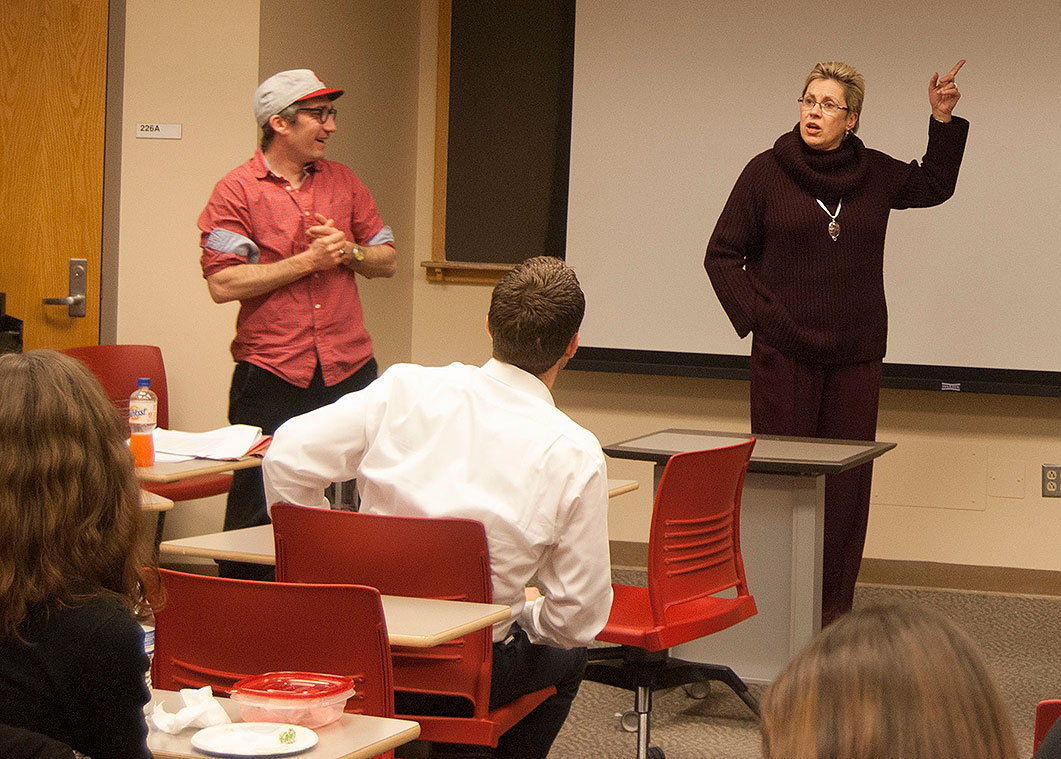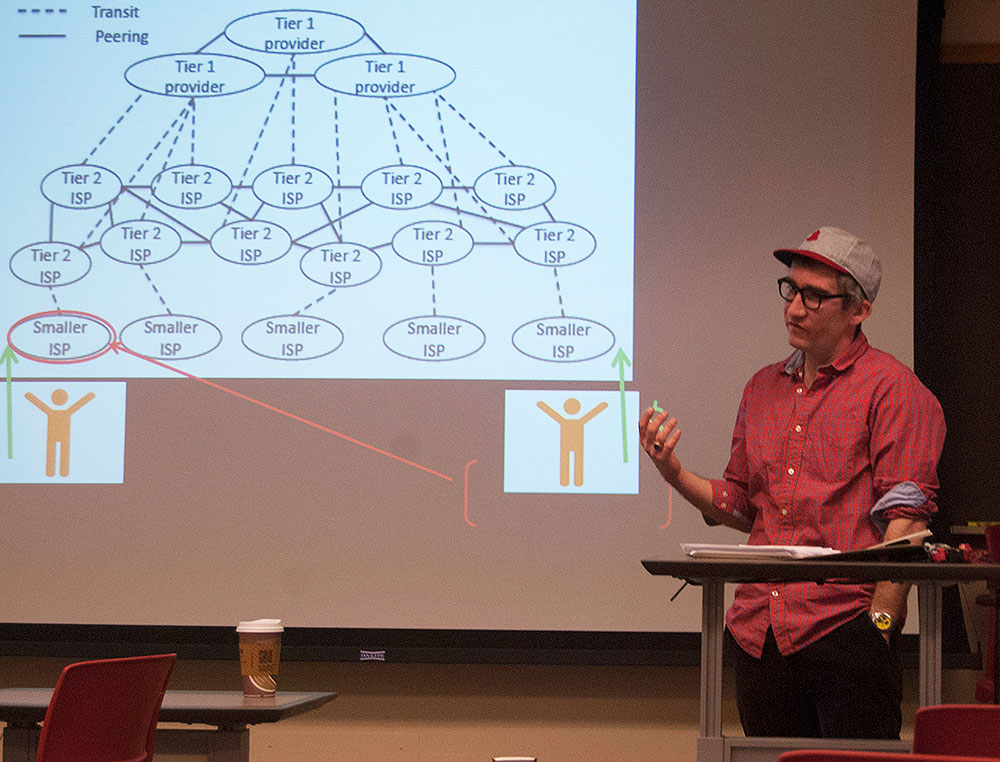Professors present arguments for net neutrality

As the Federal Communications Commission weighs new rules to move toward net neutrality, three IU Telecommunications professors say a lot of work has been accomplished but there’s still more to be done.
Professors Barbara Cherry, Julien Mailland and Matt Pierce updated the attendees of Friday’s Brown Bag series on the FCC’s decision to propose new rules moving toward net neutrality. Their talk, “Network Neutrality Reaches a Tipping Point: Restoring Common Carriage – and That’s Not Radical!” was built on a presentation they gave in September and provided insight into what they learned through research and political activities, and what to anticipate moving forward.
“This is an ongoing game,” Cherry said. “It just keeps moving.”
FCC Chairman Tom Wheeler announced on Feb. 4 that the agency issued a draft order, which included the legal framework to classify broadband Internet access service as a Title II telecommunications provider, or common carrier, and rules to support network openness.
The FCC’s proposed rules would allow consumers to access Internet content without Internet service providers prioritizing content, slowing content delivery for certain customers or blocking content, according to the agency. This “neutrality” would apply to ISPs’ treatment of any consumer, residential or commercial.
Since September, there have been significant developments on the net neutrality front, Cherry said, including continued intense lobbying, the midterm elections and the president’s statement on the policy matter. In the fall, the big question for the FCC was if President Obama would back new rules.
“That was considered the ballgame,” she said.
After the midterm elections, the Republicans took over majority control in both houses of Congress, Cherry said, and the president came out in favor of net neutrality only days after the election.
“This is considered, politically, the huge tipping point in the debate,” she said.
For Cherry and other proponents, research was needed to link the legal world with the technological one to show the justification for the FCC to promulgate the rules. She said that was accomplished and submitted to the FCC in December.
Given that it’s still a draft order, Cherry said the people on both sides of the issue still are debating the issue.
An important piece of the net neutrality discussion is the economics, Mailland said. People now pay once to deliver content and pay once to fetch content, Mailland said, and end users and content producers — such as Netflix or iTunes — are treated the same. The service providers want to move to a two-sided business model.
Mailland offered this example of a two-sided business model. If a person rents an apartment, he or she pays the landlord to use the property. But when the tenant has a party, the landlord charges $5 at the door.
“This is exactly what the ISPs want to do,” he said, but reclassifying ISPs as common carrier would prevent them for prioritizing content based on pay rates.
Mailland said the ISPs claim that content wouldn’t be censored without net neutrality, but if content producers don’t pay, they would get less bandwidth or be dropped by the ISPs.

While attending a workshop on Web and Internet economics, Mailland said when he talked about the downside of the two-sided business model, he saw what lobbying influences are doing to confuse the discussion. He said lobbyists argued that without the two-sided business model, the industry couldn’t implement a zero rating system.
That has nothing to do with a two-sided business model, said Mailland, a proponent of net neutrality.
“We need to punch back constantly,” he said.
Pierce, who also is a member of the Indiana House of Representatives, predicted net neutrality’s chances in legislature and courts. Even if the rules are enacted, he said, there likely will be pushback in both the legal system and Congress.
In developing rules, the FCC must have a record to justify a policy change, Pierce said, and that’s to fend off accusations that a policy is arbitrary. If the FCC is sued after adopting the rules, opponents are likely to argue that either the policy is arbitrary or capricious, Pierce said, or that it was implemented outside the agency’s boundaries. He said the FCC has to think about arguing its case in court and outside supporters must give it the best body of evidence to support its decision.
In Congress, Pierce said the FCC must weigh what actions the two houses could attempt to block the net neutrality rules through the legislative process.
“These are the factors they kind of have to think about,” he said.
The FCC’s proposal will be voted on in its next open meeting Feb. 26. A factsheet of the proposal is online.

